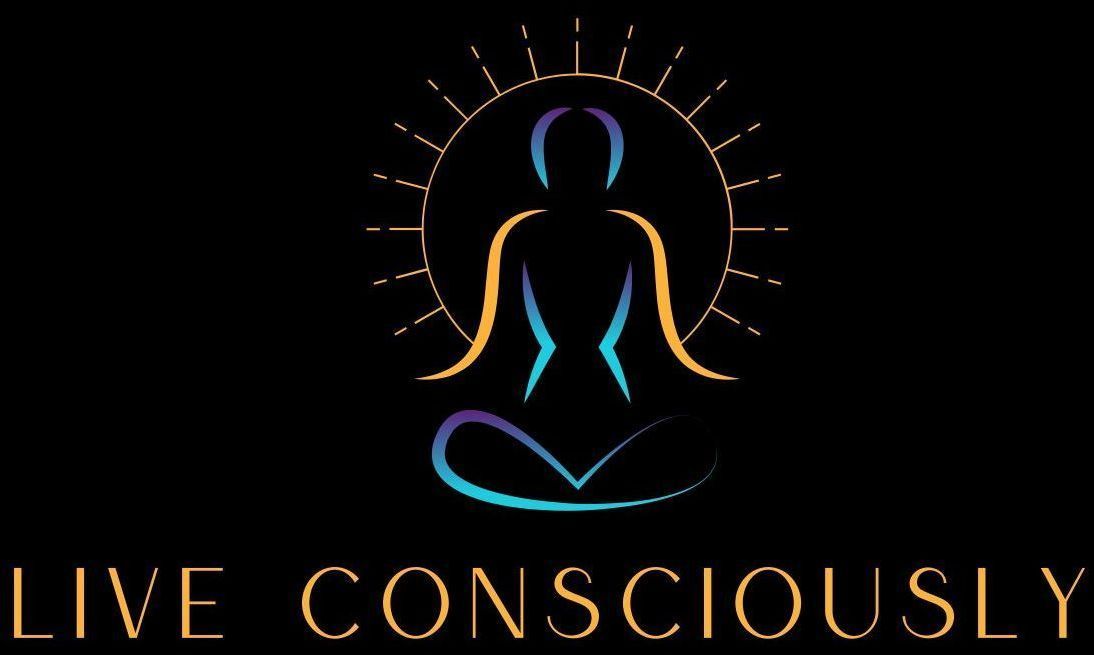What to Look for When Choosing a Trauma-Informed Therapist

Taking the first step toward trauma therapy can feel overwhelming. You've made the courageous decision to seek help, but now you're faced with another daunting task: finding the right therapist. With hundreds of mental health professionals to choose from, how do you know which trauma therapist will truly understand your unique experience and provide the specialized care you need?
After fifteen years of working with trauma survivors at Live Consciously, I've witnessed countless clients struggle with this exact dilemma. Many have shared stories of previous therapy experiences that felt unhelpful, or worse—retraumatizing. Others have expressed feeling lost in a sea of credentials and specialties, unsure what to look for in a trauma therapist.
The truth is, not all therapists are equipped to handle trauma effectively. Working with trauma requires specialized training, a deep understanding of how trauma affects the mind and body, and the ability to create profound safety in the therapeutic relationship. Your healing journey deserves a therapist who not only understands trauma but has dedicated their career to helping survivors reclaim their lives.
In this comprehensive guide, you'll learn exactly what to look for when choosing a trauma therapist, the essential questions to ask during consultations, and the key qualifications that indicate a therapist is truly trauma-informed. Whether you're seeking help for childhood trauma, PTSD, or complex trauma, this information will empower you to make an informed decision that sets the foundation for your healing journey.

Understanding What Makes a Therapist Truly Trauma-Informed
Before diving into specific qualities to look for, it's crucial to understand what "trauma-informed" actually means. This term has become widely used in mental health, but its true meaning goes far beyond simply having basic knowledge about trauma.
The Core Principles of Trauma-Informed Care
A truly trauma-informed therapist operates from six fundamental principles, as established by the Substance Abuse and Mental Health Services Administration (SAMHSA):
- Safety: Creating both physical and emotional safety in the therapeutic environment
- Trustworthiness and Transparency: Building trust through clear communication and consistent actions
- Peer Support: Understanding the value of shared experiences in healing
- Collaboration and Mutuality: Working with clients, not on them
- Empowerment and Choice: Prioritizing client empowerment and recognizing that control is crucial for trauma survivors
- Cultural, Historical, and Gender Issues: Acknowledging the impact of cultural and historical trauma
In our practice, I've observed that therapists who truly embody these principles create transformative healing experiences. They understand that trauma survivors need to feel in control of their therapeutic process and that the therapeutic relationship itself becomes a vehicle for healing attachment wounds.
Why Specialization Matters in Trauma Work
Trauma is not just another mental health condition—it fundamentally changes how the brain and nervous system function. Research by leading trauma experts like Dr. Bessel van der Kolk demonstrates that trauma literally lives in the body, affecting everything from memory storage to physical sensations.
A trauma specialist understands these neurobiological changes and knows how to work with both the mind and body in healing. They're trained in evidence-based trauma therapies and understand that traditional talk therapy alone may not be sufficient for trauma recovery.
Essential Qualifications to Look for in a Trauma Therapist
When researching potential therapists, certain credentials and training backgrounds indicate a serious commitment to trauma work.
Educational Background and Licensing
Look for therapists who hold:
- Master's degree or higher in clinical fields (social work, counseling, psychology, marriage and family therapy)
- Current state licensing (LCSW, LPC, LMFT, or psychologist licensing)
- Supervisory credentials (such as LCSW-S) often indicate advanced experience and ongoing professional development
At Live Consciously, our entire team holds advanced degrees and maintains active licensure, with several team members holding supervisory credentials that allow them to train the next generation of trauma-informed therapists.
Specialized Trauma Training and Certifications
Beyond basic education, look for therapists with specific trauma training:
Evidence-Based Trauma Therapies:
- EMDR (Eye Movement Desensitization and Reprocessing): Highly effective for processing traumatic memories
- Somatic Experiencing: Focuses on releasing trauma stored in the nervous system
- Internal Family Systems (IFS): Works with different "parts" of the self affected by trauma
- Sensorimotor Psychotherapy: Integrates body awareness with talk therapy
- Trauma-Focused CBT: Cognitive behavioral approaches specifically adapted for trauma
Advanced Training Programs:
- Certifications from recognized trauma training institutes
- Ongoing continuing education in trauma-related topics
- Training in specific populations (childhood trauma, military trauma, complex PTSD)
Clinical Experience with Trauma Populations
Ask potential therapists about their specific experience:
- How long have they been working with trauma survivors?
- What percentage of their caseload consists of trauma clients?
- Have they worked with your specific type of trauma (childhood, military, domestic violence, etc.)?
- Do they have experience with complex trauma and PTSD?
Our team at Live Consciously has over 50 combined years of trauma-focused experience, with each therapist dedicating at least 75% of their practice to trauma work. This level of specialization means we've seen and successfully treated a wide range of trauma presentations.

Key Questions to Ask During Your Consultation
Most reputable trauma therapists offer brief consultations to help potential clients determine if they're a good fit. Use this time wisely by asking specific questions that reveal their approach and expertise.
Questions About Their Approach and Philosophy
- "How do you understand trauma and its effects on the mind and body
- Look for answers that acknowledge both psychological and physiological impacts
- They should mention concepts like nervous system regulation or the mind-body connection
- "What trauma therapies are you trained in, and how do you decide which approach to use?"
- Expect them to name specific evidence-based approaches
- They should explain how they tailor treatment to individual needs
- "How do you create safety in the therapeutic relationship?"
- Listen for specific strategies, not just general statements
- They should understand that safety is foundational to trauma work
- "How do you handle trauma responses that might occur during sessions?
- They should have clear protocols for managing dissociation, panic, or other trauma reactions
- Look for answers that emphasize client control and choice
Questions About Their Experience and Background
- "What drew you to specialize in trauma work?"
- Often reveals their personal investment and understanding of trauma
- May indicate their own healing journey or professional calling
- "Can you tell me about your training and ongoing education in trauma?"
- Should be able to list specific trainings, certifications, and ongoing learning
- Continuous education is crucial in the rapidly evolving field of trauma treatment
- "Have you worked with clients who have experienced [your specific type of trauma]?"
- Important to know they have relevant experience
- They should be honest about their limitations
Questions About the Therapeutic Process
- "What does the beginning of therapy typically look like?"
- Trauma therapy often requires stabilization and safety-building before processing traumatic memories
- They should explain their approach to pacing and preparation
- "How do you involve me in treatment planning and goal setting?"
- Trauma survivors need agency and choice in their healing process
- Look for collaborative approaches
- "How do you measure progress in trauma therapy?"
- Should discuss both symptom reduction and overall functioning improvements
- May mention specific assessment tools or outcome measures
Red Flags to Avoid When Choosing a Trauma Therapist
Knowing what to avoid is just as important as knowing what to look for. Certain approaches or attitudes can actually be harmful to trauma survivors.
Problematic Approaches and Attitudes
Avoid therapists who:
- Rush into trauma processing without adequate stabilization
- Dismiss the mind-body connection or focus solely on talk therapy
- Seem uncomfortable discussing trauma details or avoid the topic
- Make promises about quick fixes or specific timelines for healing
- Lack specific trauma training but claim to treat trauma
- Seem judgmental or uncomfortable with your specific trauma history
- Don't understand concepts like triggers, dissociation, or hypervigilance
- Focus primarily on symptom management rather than addressing root causes
Warning Signs During the Consultation
Pay attention to how you feel during your consultation call or meeting:
- Feeling rushed or pressured to make a decision immediately
- Lack of warmth or empathy in their communication style
- Vague answers about their training or approach
- Seeming overwhelmed by your trauma history or symptoms
- Overconfidence in their ability to "fix" you quickly
- Poor boundaries or inappropriate self-disclosure
Trust your instincts. If something feels off during the consultation, it's probably not the right fit. Healing requires feeling genuinely safe and understood by your therapist.

Understanding Different Trauma Therapy Approaches
Not all trauma therapies work the same way, and understanding the differences can help you make an informed choice about what might work best for you.
EMDR (Eye Movement Desensitization and Reprocessing)
EMDR is one of the most researched and effective trauma therapies available. It helps the brain process traumatic memories by using bilateral stimulation (typically eye movements) while recalling disturbing memories.
Best for:
- Single-incident trauma (car accidents, assaults, natural disasters)
- PTSD with clear traumatic memories
- People who can tolerate recalling specific traumatic events
What to expect:
- Preparation phase focusing on coping skills and safety
- Processing sessions using eye movements or other bilateral stimulation
- Integration and future-focused work
Somatic Experiencing and Body-Based Approaches
These approaches focus on how trauma is stored in the nervous system and body, helping clients release trapped survival energy.
Best for:
- Complex childhood trauma
- People who dissociate frequently
- Those who feel disconnected from their bodies
- Trauma survivors who struggle with traditional talk therapy
What to expect:
- Focus on body sensations and movements
- Gentle pacing and attention to nervous system regulation
- Learning to recognize and work with trauma responses
Internal Family Systems (IFS)
IFS views the mind as naturally consisting of different "parts" and helps heal the parts that have been affected by trauma.
Best for:
- Complex trauma with multiple traumatic experiences
- People struggling with self-criticism or shame
- Those dealing with conflicting emotions or behaviors
- Individuals interested in deeper self-understanding
What to expect:
- Identifying different parts of yourself (inner critic, protector parts, etc.)
- Healing wounded parts while strengthening your core Self
- Learning to lead with compassion and curiosity

The Importance of Cultural Competence and Fit
Beyond technical qualifications, the right trauma therapist must understand your cultural background and identity. Trauma doesn't occur in a vacuum—it's deeply influenced by cultural, historical, and systemic factors.
Cultural and Identity Considerations
Look for therapists who:
- Demonstrate understanding of your cultural background
- Acknowledge the impact of systemic oppression and historical trauma
- Show competence working with your specific identities (race, sexuality, gender, religion, etc.)
- Avoid making assumptions about your experiences
- Understand intersectionality and how multiple identities affect trauma experiences
The Therapeutic Relationship: Chemistry Matters
Even the most qualified therapist won't be helpful if you don't feel connected to them. Research consistently shows that the therapeutic relationship is one of the strongest predictors of treatment success.
Signs of good therapeutic fit:
- You feel heard and understood
- They remember important details about your life and experiences
- You feel safe being vulnerable with them
- They challenge you appropriately without overwhelming you
- Your nervous system feels calmer in their presence
- You leave sessions feeling hopeful, even when discussing difficult topics
Making Your Decision: Trust Your Instincts
After gathering information and having consultations, you'll need to make a decision. Remember that choosing a therapist is an important decision, but it's not irreversible. You can always change therapists if the fit isn't right.
Factors to Consider
Practical considerations:
- Insurance acceptance and fees
- Location and accessibility
- Scheduling availability
- Mode of therapy (in-person, online, or hybrid)
Clinical considerations:
- Specific training in approaches that interest you
- Experience with your type of trauma
- Treatment philosophy alignment
- Availability for crisis situations
Personal considerations:
- How you felt during the consultation
- Your intuitive sense of safety and trust
- Communication style compatibility
- Cultural competence and understanding
Starting Therapy: What to Expect
Once you've chosen a therapist, understand that trauma therapy is often a gradual process. Healing doesn't happen overnight, and your therapist should help you understand what to expect.
Early sessions typically focus on:
- Building safety and trust in the therapeutic relationship
- Assessment and understanding your trauma history
- Developing coping skills and emotional regulation techniques
- Creating a treatment plan together
- Establishing goals and expectations
Remember:
- It's normal to feel worse before you feel better as you begin processing trauma
- Progress isn't always linear—expect ups and downs
- Your active participation is crucial for healing
- It's okay to ask questions or express concerns about the process
How Live Consciously Embodies These Principles
At Live Consciously, we've built our entire practice around the principles outlined in this guide. Our team of trauma specialists brings together decades of combined experience with evidence-based approaches like EMDR, Somatic Experiencing, Internal Family Systems, and more.
What sets us apart:
- Specialized expertise: Each team member dedicates the majority of their practice to trauma work
- Evidence-based approaches: We're trained in the most effective trauma therapies available
- Mind-body integration: We understand that trauma healing requires addressing both psychological and physiological symptoms
- Cultural competence: Our diverse team brings understanding of various cultural perspectives and identities
- Collaborative approach: We work with you, not on you, respecting your autonomy and expertise about your own experience
- Safety-first philosophy: Every interaction is designed to increase your sense of safety and empowerment
Our therapists—Alexandrea, Dafina, Michah, Melanie, Juanita, and Elizabeth—each bring unique specialties while sharing a commitment to trauma-informed, compassionate care.
Conclusion: Your Healing Journey Deserves the Right Guide
Finding the right trauma therapist is one of the most important investments you can make in your healing journey. The right therapeutic relationship can be profoundly transformative, helping you not just recover from trauma but discover parts of yourself you never knew existed.
Remember these key takeaways:
- Specialization matters: Choose someone specifically trained in trauma work
- Trust your instincts: Your nervous system knows when you feel safe
- Ask the hard questions: A good therapist welcomes your curiosity about their approach
- Cultural fit is crucial: Find someone who understands your full identity and experience
- It's okay to shop around: Taking time to find the right fit is an investment, not a delay
Your trauma doesn't define you, but your healing journey can transform you. The right trauma therapist will honor your resilience, respect your timeline, and walk alongside you as you reclaim your life. You deserve nothing less than a therapeutic relationship that feels both professionally excellent and genuinely caring.
Take your time, ask questions, trust your gut, and remember that seeking help is a sign of strength, not weakness. Your future self will thank you for choosing wisely.

Ready to Take the Next Step?
If you're ready to begin your healing journey with a trauma-informed therapist who truly understands your experience, we're here to help. At Live Consciously, we offer free 15-minute consultations to ensure we're the right fit for your specific needs.
Schedule your free consultation today:
Phone:
(254) 826-9450
Email:
info@liveconsciouslypllc.com
Website:
www.liveconsciouslypllc.com
During your consultation, we'll discuss your goals, answer your questions about our approach, and help you determine which of our trauma specialists might be the best match for your healing journey.










